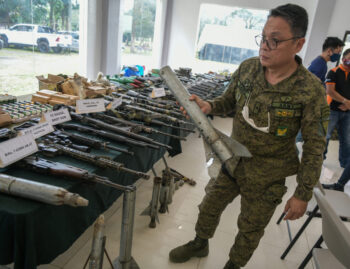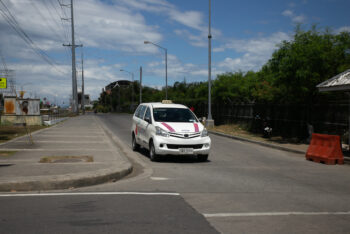NAAWAN, Misamis Oriental (MindaNews / 6 Apr) – The credibility of the Supreme Court was in a tailspin when some of its justices took the bait during the fishing expedition of Atty. Lorenzo Gadon and the House Justice Committee for evidence in the enthusiastic move to impeach Chief Justice Maria Lourdes Sereno. The presence of four justices in the House who testified on alleged irregularities committed by the CJ in the management of Supreme Court, never mind if they were not impeachable offenses, was received by the House with glee. Needless to say, critics considered the animated drama in the House as the surrender of the independence of the highest justice tribunal of the country to the maneuvers of the politicians in the two other branches of the government. How it would handle the quo warranto case filed by the Solicitor General against the beleaguered CJ would define the future of the SC.
For the meantime, the SC’s credibility apparently rose from the dead almost coinciding with the Easter celebration and showed its teeth when it ordered the government to submit full report on its war on drugs. Specifically, the Supreme Court en banc, required the Solicitor General, after three days of oral argument on the petition against Project Tokhang, to submit the complete documentation on the 3,000 that were killed in legitimate police operations to include:
- Names, addresses, ages, gender of those who were killed
- Place, date, and time of the drug operation
- Names of the PNP team leaders and members who participated in the operation
- Pre-operation plan “or whatever is the pre-operation preparation”
- Post-operation operation
- Whether search warrants or warrants of arrest were issued
- Names of media, NGOs, or barangay officials who were present during the operation
The human rights group and the FLAG lawyers who represented the relatives of the victims of the police operations were jubilant and considered the above order to the government as meaningful initial gains in the quest for justice to the said 3,000 casualties on the war on drugs. The SC, though, has yet to act on the other concern of the petition, which is the nullification of two DILG and PNP memorandum circulars which are perceived as violative of due process and human rights, namely:
- DILG-PNP Memorandum Circular No.16-2016. Accordingly, the circular contains a direct command to the police to neutralize suspected drug personalities instead of arresting and prosecuting them, and to conduct house-to-house visits and negate those who deny the visits or refuse to cooperate with the police visitors.
- DILG Memorandum Circular No. 2017-112, creating the community-based “Mas Masid” program that establishes channels for reporting crimes, including the controversial drop boxes. The petition said that while encouraging citizens to report crimes is perfectly legal, the DILG circular is not about reporting crimes but rather about compiling names of purported criminals.
In the same plea, the petitioners also ask the SC to stop the PNP from carrying out any instructions, pronouncements or utterances of President Rodrigo Duterte that do not conform to the President’s ordinance power under Executive Order No. 292.
The said EO, according to the petitioners, provides that the exercise of President Duterte’s ordinance power must be in writing.
A positive decision of the Court to the petitioners’ pleas may yet put the war on drugs above board and stop the daily fare of killing that scares not so much the hardened drug personalities but the law-abiding citizens of the land.
Serendipitously, the move of the Supreme Court to dig deep and unmask the government’s war on drugs is beneficial to President Duterte. This may yet put an end to his annoyance over the investigation on his alleged crimes against humanity.
The International Criminal Court (ICC) ceases to assume jurisdiction and halt any proceedings on a case before it if the country of origin displays the capacity to investigate and put closure to said case. Thus the flamboyant Digong can be off the hook sans deliberate effort at all, thanks to his unstoppable critics.
(MindaViews is the opinion section of MindaNews. William R. Adan, Ph.D., is retired professor and former chancellor of Mindanao State University at Naawan, Misamis Oriental.)







